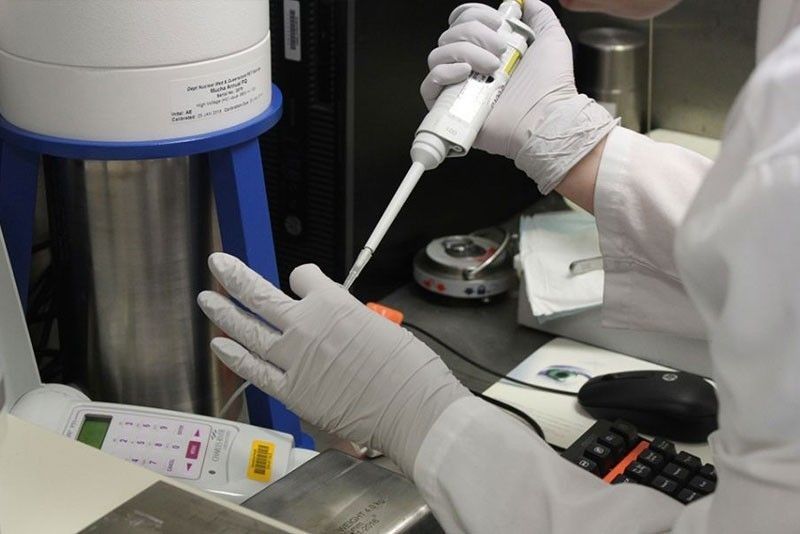Rules out on new cancer control law

MANILA, Philippines — Cancer patients can expect better access to more responsive and affordable healthcare services with the signing of the implementing rules and regulations (IRR) of the National Integrated Cancer Control Act (NICCA) last Friday.
According to Health Secretary Francisco Duque III, the law ensures better treatment and care for every cancer patient and that all efforts to “prevent and control cancer and improve cancer survivorship” can be scaled up.
“Our vision for the newly strengthened National Integrated Cancer Control Program is Comprehensive Cancer Care and Optimized Cancer Survival by 2025, which will complement the implementation of UHC,” he noted.
Duque added that of over 106 million Filipinos, the DOH expects to see more than 140 thousand new cancer cases and more than 80 thousand cancer deaths every year.
The Department of Health (DOH) said breast cancer is listed as the most common cancers among Filipinos followed by those of the lungs, colon, liver and prostate. Lung cancer, meanwhile, is the leading cause of cancer-related deaths followed by liver, breast, colon and leukemia.
Under the law, the packages of the Philippine Health Insurance Corp. (Philhealth) for cancer patients will be expanded for cancer patients. It mandates the establishment of the Philippine Cancer Center to ensure access to cancer care services and medicines.
Under the law, the Philippine Cancer Center shall also develop a National Integrated Cancer Control Council to steward policy formulation and programming.
HIV meds run out next month
Meanwhile, the apparent depletion of anti-retroviral (ARV) drug supply of the government next month, has prompted the DOH to ask treatment hubs to procure their own supply under the reimbursement system.
A letter sent by DOH Undersecretary for public health services team Myrna Cabotaje to a treatment hub said a recent inventory showed that its stock of Lamivudine/Tenofovir/Efavirenz (LTE) 300mg/300mg/600mg tablets, “the fastest moving ARV” and 300 mg Efavirenz tablets will last only until September given the number of patients on these drugs.
Both protocols are being used for the treatment of people infected with HIV/AIDS. ARV drugs are also being used to slow down the progression of HIV into AIDS.
According to the DOH, new patients are being enrolled in this drug daily.
The letter stated that more stocks of EFV will expire by September and the remaining stocks will last until March 2020, “making it insufficient until the next procurement cycle of the DOH.”
“To secure the much-needed ARV, we are earnestly requesting the support of treatment hubs… to procure nine month’s supply of LTE and EFV for your current patients on these drugs using the reimbursed funds from Outpatient HIV and AIDS Treatment (OHAT) package of the Philhealth,” the letter read.
“This is just a stop-gap to ensure the supplies will not be interrupted. It’s just an augmentation… We are also doing realignment of stocks from one hub to another,” she added.
The DOH had also requested the international funding agency Global Fund to Fight AIDS, Tuberculosis and Malaria for augmentation of supplies.
She added that the “rigorous” procurement requirements and processes of the government prevent the DOH from speeding up the purchase and delivery of more supplies ahead of the scheduled shipments.
Gerard Belimac, DOH program manager for National AIDS and STI Prevention and Control Program, explained that the shortage was due to the increase in HIV/AIDS patients availing themselves of ARV after the agency had launched the “test and treat” program in September last year.
Belimac told The STAR that this year, the number of patients enrolling in ARV is around 1,000 every month. Prior to this, it was only around 700 per month.
“We have also simplified the process so many are able to avail of the ARV. Before, you have to reach a certain level of CD4 before you can be enrolled in ARV but now when you test positive for HIV, you can immediately avail of ARV,” he said.
Annually, the DOH allocates P12,500 in ARV medicines and laboratory tests for each patient. As of March 2019, there are some 36,000 patients on ARV.
Belimac added there are other ARV medicines for HIV/AIDS but the LTE combination is the “most popular” because it serves as the “first line” treatment protocol for HIV patients.
DOH data showed from January to April 2019, there were 4,274 new cases of HIV/AIDS documented in the country. From January 1984, a total of 66,303 cases were recorded.
This year, 36 new cases are being seen, up from one in 2008; seven in 2011; 16 in 2014 and 32 in 2016.
- Latest
- Trending






























